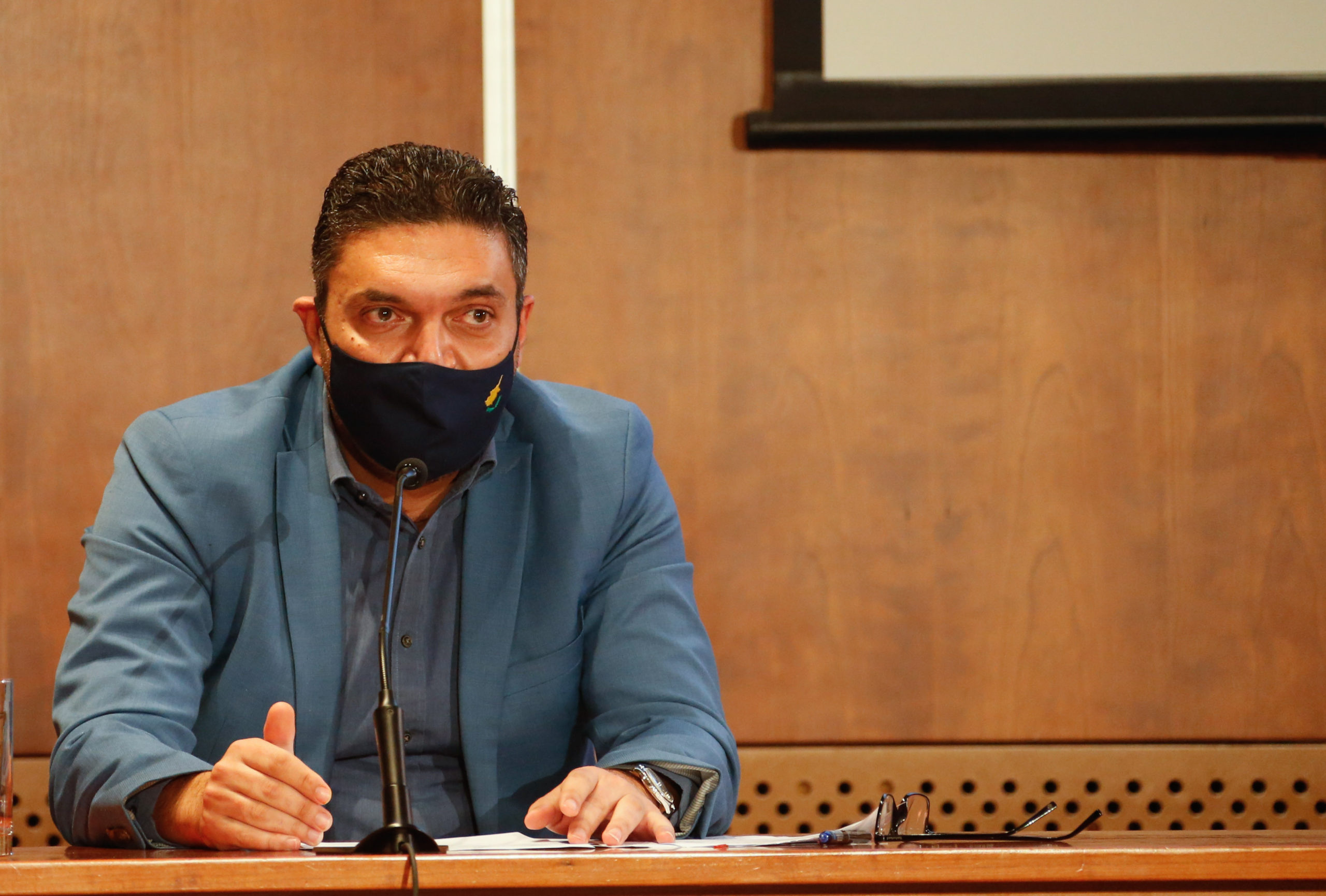Finance Minister Constantinos Petrides on Friday said parliament’s 2021 budget rejection came at the worst possible time, putting the brakes on government fast-tracking economic recovery from COVID-19.
Although the government is preparing a new budget to present before parliament in January, Petrides argued that Thursday’s rejection is also a blow to state support for businesses, employees, and social welfare.
Until the Finance Ministry prepares a new budget, the state will have to run on what is known as ‘twelfths’, equal to one-twelfth of the previous year’s budget, meaning that expenditures cannot exceed the spending of the same month of 2020. The state can do this for two months until March.
Petrides said: “voting down the budget translates into a cut of €2.91 bln in social benefits and of €1.1 bln in health. This is the largest amount concerning the welfare state ever provided in a state budget in Cyprus”.
Expressing satisfaction over the approval of contingency expenditures, he said this would mean reduced expenses in January compared to those originally planned, as the 2021 budget was increased by €742 mln compared to 2020
Petrides argued that authorities could not sign contracts or start new development projects scheduled for January.
“The shooting down of the budget comes at a very difficult period and will be sending out negative messages abroad and deepens financial uncertainty.”
He said voting against the budget also meant a vote against the EU Recovery and Resilience Fund, as all funds earmarked for the year are through the state budget.
Parliament on Thursday rejected the 2021 state budget by 29 votes against to 24 in favour with DIKO votes joining those of AKEL, the Greens and Independent Anna Theologou.
For the budget to pass 50% of the votes cast among the 55 MPs is needed.
Essentially DIKO made good on its threat to take matters to the extreme and veto the budget because the government would not grant the Auditor General access to files relating to the controversial citizenship-by-investment scheme.
Corruption
AKEL accused the government of trying to sweep corruption under the carpet.
The investment scheme was discredited after it was revealed that foreign investors with a shady past had obtained a Cypriot passport from authorities.
In a statement released shortly after the vote, President Nicos Anastasiades said he was aggrieved and disappointed with the outcome.
“This will be the first time a budget has been vetoed in the 60-year history of the Republic, and for reasons unrelated to the budget’s philosophy.”
Anastasiades said that while he understands political parties may have genuine disagreements over economic policy, he cannot make sense of “DIKO’s stance which seeks through blackmail to substitute the lawfully elected government”.
“It is not the government that is being punished; those being punished are businesses who today risk going bankrupt, as well all those who risk losing their jobs due to the painful measures.
“It is the vulnerable groups who need the Guaranteed Minimum Income, it is low-income pensioners.”
Health Minister Constantinos Ioannou said the fallout would impact the healthcare system and the procurement of vaccines for Covid-19.
Although officials say the triple-digit daily infections remain manageable, Ioannou warned that failure to approve the budget could hobble efforts to keep COVID-19 in check.
Ioannou said his ministry’s 9.6% share of the budget was the largest in the country’s history.
This is not the first time a budget has been voted down, as the government has stated.
In 1993, during then-President Glafcos Clerides administration -backed by DISY and DIKO- parliament voted down the 1994 state budget because it included a provision for the reinstatement of 62 civil servants who had been expelled as because of their ties to the 1974 army coup.
The state had operated for two months with the “twelfths”, while the fall out lasted until the end of March and was resolved shortly before the date when the state had to pay salaries and pensions from the 1994 budget










